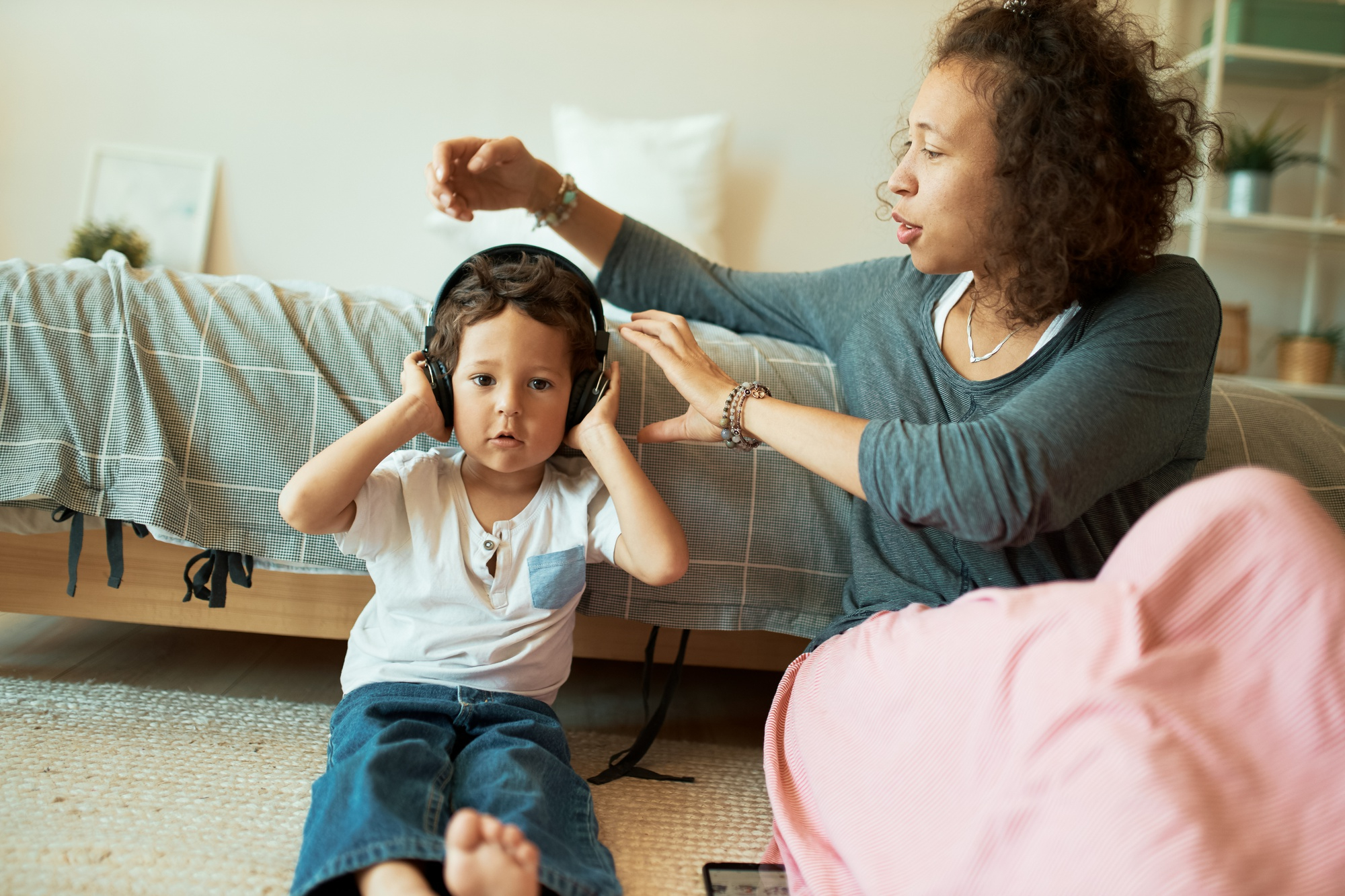How regularly do you express affection to your partner? How well is your affection received?
Perhaps you haven’t been communicating your affection the way your partner wishes to receive it. The language of love, i.e. feelings and good intentions, can be lost in translation when you and your partner don’t speak the same love language. That’s because we each express and receive love differently.
Each of us are different, with different personalities which means we each give and receive love in different ways. The most commonly known five love languages describe the ways in which people express and receive love in their relationships.
When we learn to recognize what languages we and our partner prefer we can deeply connect to each other, identify the root cause of our conflicts, and grow closer to one another. Keep reading to discover what these five love languages are and how they can affect your relationships.
What is a love language?
A basic example of a love language would be if you had a friend who tells you they’d rather have a home-cooked dinner and a clean kitchen over given flowers as their version of romance.
Another example: you spend all your time and energy (and some cash) looking for that perfect gift, but when the occasion arrives, their response is, “I would have been happy just spending time with you with an evening in, cuddled on the couch with our favourite take-out.”
No, they’re not being ungrateful, and no, you didn’t mess up expressing your love for them. What’s going on is that you both communicate your love differently, or rather, each have a different love language.
When you recognize how you and your partner prefer to express and receive love you create more connection and a healthier relationship.
First published in 1992, The 5 Love Languages: The Secret to Love That Lasts, was written by Gary Chapman, Ph.D., who developed the concept of love languages, describes five specific styles of communicating love, categories he extracted from experience in linguistics and marriage counselling.
These five love languages are:
Words of Affirmation
Giving or receiving “words of affirmation,” are using spoken word, written, in texts (or all three) to give praise, or appreciation to express affection. When this is your primary love language, you appreciate cute text messages, love notes (and letters), quotes that are uplifting, kind words and encouragement. It can be a boost in your day when you receive a compliment or words of encouragement from your partner, family member, or close friend.
Words of affirmation may be your love language if you flourish on:
- Receiving encouraging words
- Being told how much you’re appreciated.
- Hearing “I love you” frequently.
The best way to use words of affirmation is to express them frequently and truly be your authentic self. When you have trouble expressing yourself verbally, write it down or send a text, as long as you have acknowledged them through words.
Words of affirmation you can use in your romantic and platonic relationships:
- “I love you.”
- “I value our friendship.”
- “I am proud of you.”
Quality Time
Giving someone your undivided attention while you are together is what the quality time love language is all about. They are feeling loved when you are focused on them and present during your time together. It means making eye contact, actively listening, and putting the devices aside.
Quality time might be your love language if:
- When you don’t spend enough time with a partner, you’re feeling disconnected.
- Your libido is affected when you don’t spend enough time with your partner(s).
- You put in the time and effort to make time to spend with others.
Quality time looks different for each person. Some value a couple of minutes out of the day dedicated to just relax together at the end of a long day. While others, quality time may mean dedicating time to enjoy some activities together.
Quality time examples:
- Taking a few minutes each morning to cuddle before getting out of bed.
- Scheduling a date night each week.
- Scheduling time with your BFF through the busy chaos of each others’ lives.
- When having a conversation or doing something together, putting your phone on silent or turning it off.
- Creating a ritual, or tradition, like a walk after dinner, or meeting for coffee once a week.
Physical Touch
If you prefer physical touch as your primary love language, you feel love through physical affection. Sex aside, examples are, you feel loved when you are holding hands, touching your arm, or giving a massage at the end of a hard day.
Your idea of the perfect date includes cuddling close on the couch with a good movie and a glass of your favourite wine. You just want to be physically close to your partner.
To be clear, physical touch is appropriate, and consensual, which looks different depending on your situation and type of relationship you have with the other person.
Expressing and receiving love through physical contact is important to those whose love language is physical touch, as it is how they connect and feel connected to other people.
Physical touch might be your love language if:
- When you don’t receive physical affection from your partner(s) you’re feeling lonely or disconnected.
- When you’re randomly held or kissed you feel especially loved.
- You enjoy PDA and consider yourself a person of the “touchy-feely” type.
The way you should and can touch others depends on the relationship you share. Small gestures like a hug, or snuggling are ways of expressing affection through physical touch. When appropriate, it can become more intimate like kissing, and sexual activities.
Examples of expressing physical touch are:
- Giving hello and goodbye kisses.
- Generous displays of public affection.
- Cuddling in bed before going to sleep and before getting up in the morning.
- Making sex a priority, even if it must be scheduled.
- When comforting one another, using touch such as holding each other or placing your hand on theirs.
Again, to emphasize, consent is absolutely a must. Touching someone is only okay if it is wanted and welcomed.
Acts of Service
Acts of service are kind things you do for your partner that makes them feel loved and appreciated, like:
- Helping do dishes.
- Run errands.
- Vacuuming the living space.
- Getting gas for the vehicle.
If your love language is acts of service, you’ll notice and appreciate little things your partner does for you, and you tend to show kindness with acts of service for others too.
If you believe “actions speak louder than words,” as the saying goes, acts of service may resonate with you.
Acts of service mean doing things that are selfless and thoughtful for the other person. They don’t need to be romantic gestures, as your relationships with your friends and family can benefit too.
Acts of service might be your love language if:
- When your partner helps you with something (like a household chore) without being asked, you feel ecstatic.
- When your friend has a bad day, you’re the one who shows up for them.
- For the people you care about, you’re always ready to jump in and do things for them.
No grand gestures need apply here, but instead, small thoughtful gestures like making coffee for your partner in the morning or running an errand for a busy friend or family member.
Examples of acts of service you can do to give love to others are:
- Taking them out for dinner without there being a special occasion or asked for.
- Without any expectations, drawing your partner a bubble bath.
- Offering to take care of your friend’s kids for an evening so they can have some time to themselves (or with their partner).
- Let your partner choose the movie, even if it’s one you don’t prefer.
- ‘Just because’ moments, like picking up their favourite flowers/chocolate/wine/soap/etc., whatever it may be.
Receiving Gifts
This is the love language not reserved for those who are greedy, or “gold digger” types.
Gift-giving can indicate love and affection for those who use and respond to this love language. Not only is the gift itself treasured, but also the time and effort put into it.
Those who enjoy receiving gifts as part of their love language will not necessarily expect large or expensive gifts; as it’s the effort and thoughtfulness behind the gift where the love is felt.
When taking the time to pick out a gift, specifically for the other person, it lets them know you know them. Those who prefer this love language will often remember each little gift they’ve received from their loved ones because it has impacted them in a big way.
Receiving gifts may be your love language if:
- You put in time and effort when choosing a thoughtful gift for someone you’re giving to.
- No matter how small or inexpensive, you treasure each thing your partner gives you.
- When an occasion (like a birthday, holiday, or anniversary) isn’t commemorated with a thoughtful token from someone you love, you feel hurt.
Small gifts chosen with thought and care show others they were on your mind and are loved by you.
To show love whose love language is receiving gifts here are some ideas:
- On your way home, pick up their favourite candy or pastry.
- Hand picked or store bought, flowers are always a great surprise.
- Greeting cards for any occasion, or even just because, whether handmade or store bought.
- Gifting your BFF a keepsake from early in your friendship, like a photo from your first sleepover or road trip.
- Inside jokes, shared memories or events from your relationship help personalize your gifts.
What It’s All About
Each person has a different way in which they communicate their love for someone. The love languages can be a helpful starting point in understanding you and your partner(s) better.
Learning to speak your partner’s love language can take effort and intention, especially if it differs from yours. Your relationship can be enhanced with learning and putting your partner’s love language(s) into practice. Healthy relationships are developed through effort and intention.
Do you need help understanding your partner’s love language better? Maybe you’re both interested in deepening your relationship, or you’re feeling like yours is getting lost or misunderstood. Counselling and psychotherapy are both helpful in nurturing relationships and addressing issues within them. Our staff at Hopewoods are certified and qualified to provide marriage and relationship counselling for couples of various kinds.
You can book a free 30-minute consultation with us to see if we’re the right fit for you and your partner, or contact us here if you have any questions about our services.
Still not sure if these sound like your love language? We’ve got a part 2 article coming up that explores the love languages of neurodivergent people. Stay tuned for more details.









 by
by